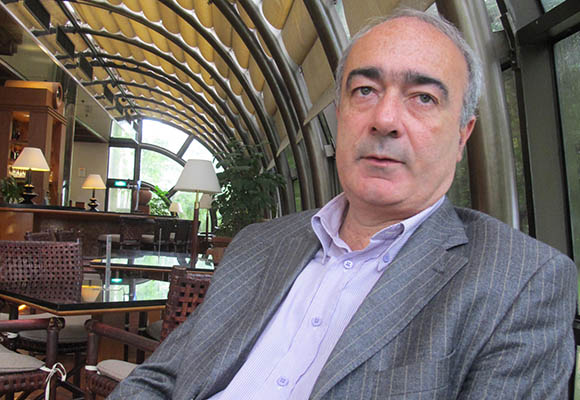2022-2024 reforms corrected Macau’s casino industry imbalance
ab25
The new regulatory framework overhaul that was implemented through reforms in 2022 and 2024 led to “major corrections” in the Macau casino industry rather than routine updates, aimed at fixing what had become a dangerously unbalanced system after two decades of breakneck expansion, gaming law expert Jorge Godinho argues in a recent study.
“There were too many gaming promoters and VIP rooms, too much credit for gaming, and too much money moving out of China,” Godinho writes in his study, The Macau SAR Regulation of Casino Gaming: Structural Features After the Reforms of 2022–2024.
“Numerous casinos were built, but not that many non-gaming services were developed.”
The reforms come after years of unsustainable growth, followed by sharp decline during the COVID-19 pandemic. The gaming industry peaked in 2013/14 but entered what Godinho describes as “a bumpy ride that became a freefall.”
Macau’s reliance on high-rolling VIP gamblers—many from mainland China—exposed vulnerabilities that the pandemic brought into sharp relief.
The post-2022 model is rooted in 10 core features, all of which are now formally embedded in law and practice.
First, the private sector continues to operate casino gaming, but only under concession contracts concluded with the Macau SAR Government. “The operation of gaming services is not a free or open economic activity,” Godinho notes. “It is reserved for the Macau SAR,” though never operated directly by the public sector.
These contracts are always temporary, a key structural principle. While past concessions lasted up to 25 years, the current term is limited to ten, with extensions allowed only in narrowly defined circumstances. “Since 1849, no company has ever held an open-ended authorization to operate games of chance,” Godinho emphasizes.
Macau maintains tight control over market entry through public tenders—rare but decisive moments that determine who can operate in the sector. “There is always a deadline for the expiry of a gaming concession, after which a new concession process must take place,” he writes. Only three tenders have occurred in the last 60 years.
Taxation, too, has evolved. In 1976, Macau shifted to a system based on gross gaming revenue (GGR), which enabled more transparent government oversight. Today, total taxation on GGR stands at 40 percent—a historic high. “The taxation of the GGR is 40 percent—which, of course, is an all-time high,” Godinho points out.
Casinos are now permitted to offer a wide array of games, but Baccarat remains dominant. “Baccarat is by very far the most important and popular since 1976,” Godinho says, noting that it is “the only game played in the VIP market.”
Since 1962, concessionaires have also been required to make significant investments. These obligations have now shifted toward non-gaming projects, such as entertainment, cultural facilities, and health services. “At the time of writing, the investment must be in an extremely broad range of non-gaming activities,” Godinho explains.
The competitive landscape has also matured. From a long-standing monopoly under STDM, the market opened in 2002 to three concessionaires, and later to six. That structure continues today, with six active concessionaires.
The VIP gaming promoter downturn

Gaming promoters—once a powerful force in Macau’s casino economy—have faced tighter regulations.
“The number of licensed gaming promoters is quite low at the moment,” writes Godinho, noting that since 2024, they can no longer grant credit independently, only on behalf of concessionaires. This is a dramatic reversal from earlier years when promoters played a central role in driving VIP traffic.
Another notable change is the integration of national and regional security concerns into gaming regulation.
“Since 2022, national security of the PRC and regional security of the Macau SAR are important objectives that gaming regulation must protect.”
Jorge Godinho
As the industry recovers from pandemic lows, Macau’s government is signaling a shift away from old growth models. The focus now is on a mass-market, tourism-driven model with diversified offerings—a vision long proposed, but only now materializing. “In 2004, it was thought that the mass market would grow fast and reduce the dependence on VIP gaming,” Godinho writes. “But only now that is happening.”
Looking ahead, regulatory enforcement may take center stage. A new gaming crimes law passed in October 2024 introduces criminal penalties for illicit financial movements, suggesting an increasingly strict approach. “There are strong signs of a stricter approach,” says Godinho.
https://agbrief.com/intel/deep-dive/13/04/2025/2022-2024-reforms-corrected-macaus-casino-industry-imbalance-expert/

Comments
Post a Comment